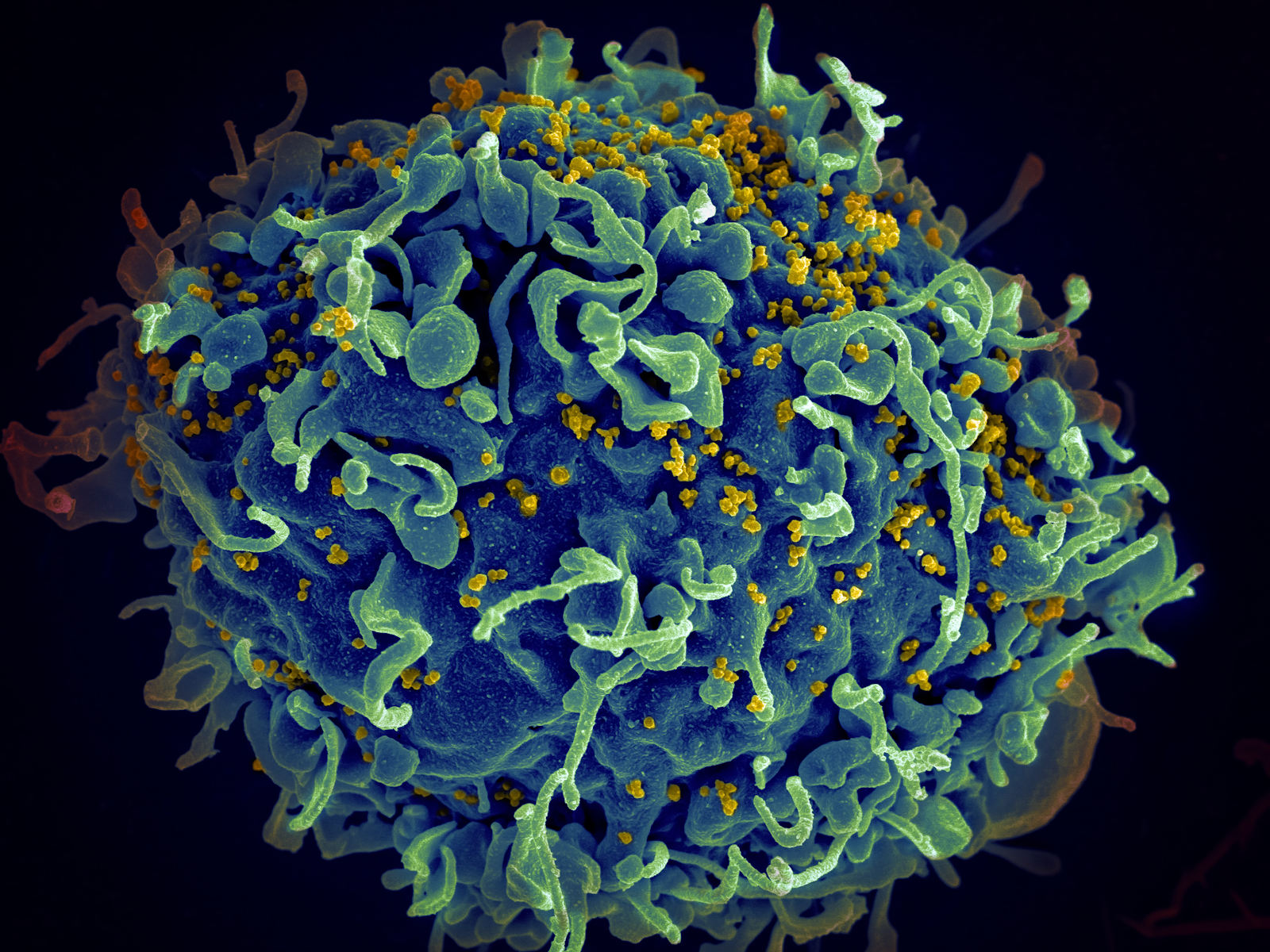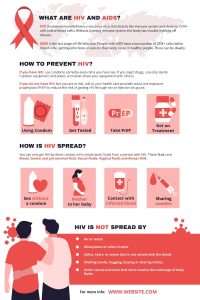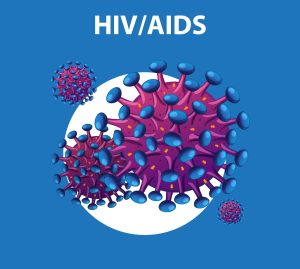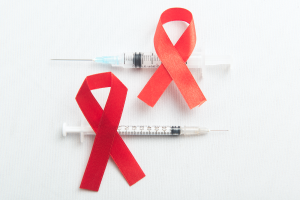Disclaimer:
This article is for information purposes only. It is not a substitute for medical advice or treatment. Seek medical care for your treatment.
What is HIV infection?
The human immunodeficiency virus (HIV) is the underlying cause of acquired immunodeficiency syndrome (AIDS), a chronic and possibly fatal illness. HIV obstructs your body’s ability to fight infection and disease by deteriorating your immune system. HIV infects and damages cells of your immune system, making it difficult to fight other diseases.
STIs, or sexually transmitted infections, include HIV. Additionally, sharing needles, using illegal injection drugs, and coming into close contact with contaminated blood can spread it. It can be passed on from mother to child via nursing or childbirth. It could take years without treatment for HIV to weaken your immune system to the extent where you develop AIDS.
HIV/AIDS cannot be treated, but drugs may control the infection and hinder the illness from getting worse. Worldwide AIDS deaths have decreased as a result of antiviral treatments for HIV, and international organisations are striving to expand access to treatment and prevention programmes in nations with limited resources.
HIV is passed on via bodily fluids that are:
- Blood
- Semen
- Vaginal and rectal fluids
- Breast milk
The virus is not transferred into the air or water or through normal touch because HIV inserts itself into the DNA of cells. Many scientists are working to find the correct drug but it is a prolong illness and lately there is no drug to eradicate HIV from the body. It is possible to live with HIV for numerous years through medical care including a treatment like antiretroviral therapy.
What is AIDS?
AIDS is the last and most chronic stage of HIV infection. AIDS patients have low counts of certain white blood cells and acutely damaged immune systems. They may have other illnesses that show that they have advanced to AIDS. Without any treatment HIV infections results in AIDS in further 10 years.
Difference between AIDS and HIV:
HIV is not like AIDS. It is a virus that weakens your immune system. When your immune system is significantly harmed due to an HIV infection, you may develop AIDS.
If you do not have HIV infection, you cannot develop AIDS. Not every HIV patient grows AIDS because of treatment that reduces the virus’s effects. But almost all HIV-positive individuals will get AIDS if they fail to receive treatment.
How prevalent is HIV?
The number of new HIV cases has decreased. In 2019, almost 1.2million people in the U.S. were living with HIV. Approximately 30% of those people are unaware that they have it; this is why it is significant to get a routine testing for HIV.
Stages of HIV:
Stage 1: Acute HIV
Some people catch symptoms similar to flu a month or two after they have been diagnosed with HIV. These symptoms generally depart within few weeks.
Stage 2: Chronic stage latency
You can have HIV for several years without feeling ill, after the acute stage. It is necessary to know that you can still pass on HIV to others even if you feel fine.
Stage 3: AIDS
AIDS is the most chronic stage of HIV infection. HIV has greatly harmed your immune system in this stage and opportunistic infections make you sicker. Opportunistic infections are ones that someone with a good immune system could stave off. When HIV has proceeded to AIDS, these illnesses harm your poor immune system. You are more prone to get some cancers when you get AIDS. These cancers and opportunistic infections are called AIDS-defining illnesses. To be diagnosed with AIDS, one must be infected with HIV and must have one of the following:
- Fewer than 200 CD4 cells per cubic millimeter of blood
- An AIDS-defining illness
Causes of HIV:
In the UK generally HIV is caused by having unprotected sex with a person who has HIV. A HIV person can pass on the virus to others even if they do not have any apparent symptoms. Person with HIV can pass on the virus more swiftly in the weeks following infection. HIV treatment potentially lowers the risk of someone with HIV transferring it. A virus is the cause of HIV. It can be passed on by sexual activity, sharing or using illegal injection equipment, coming into contact with polluted blood, or from mother to child through nursing or childbirth.
HIV kills CD4 T cells, which are white blood cells that are significant to the body’s defence against illness. Your immune system gets weaker as the number of CD4 T cells shrinks.
Sexual contact:
In UK most of the people diagnosed with HIV got the virus via unprotected vaginal, anal oral sex, although chances are lower to get HIV through unprotected oral sex. The risk is greater if:
- The person performing oral sex has mouth ulcers, sores or wounded gums
- The person receiving oral sex has lately been diagnoses with HIV and has a lot of the virus in their body or any other sexually transmitted infection.
Abstain from sharing needles:
HIV is spread through blood and can be reduced by using materials that have come in contact with the blood of HIV patient.
Conclusion:
Treatments have progressed considerably since the AIDS epidemic’s highest point. If you are able to start and maintain ART medication and get an evaluation as promptly as possible, your chances of living a long life are at their best. Today’s HIV-positive individuals can live meaningful relationships, work, lead active social lives, and raise their families. In actuality, your wellbeing may benefit from this.
Regardless of the fact that treatment developments have been made, HIV stigmas in society unfortunately endure. A new diagnosis can cause feelings of fear and dread, but it can also make you speculate how people around you will react. You can get in touch with a local HIV-focused organisation if you’re hesitant to get tested, treatment, or just don’t know what to do next. Remember that you deserve kindness, support, and first-rate medical care.




